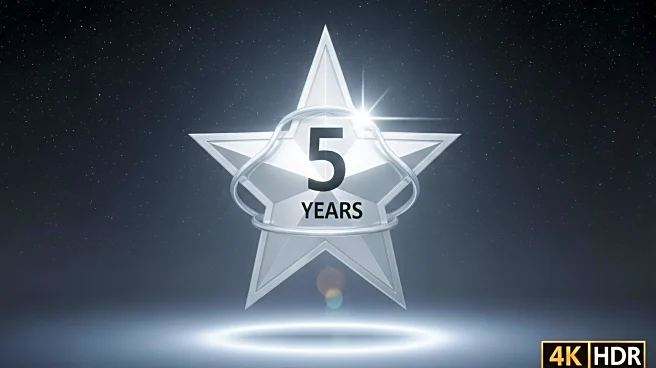What is the story about?
What's Happening?
Taylor Swift has been granted a five-year restraining order against Brian Jason Wagner, who is alleged to have stalked the singer and attempted to enter her Los Angeles home multiple times. According to court documents, Wagner made several visits to Swift's residence, claiming to be in a relationship with her and asserting that she was the mother of his child. Swift's security team discovered Wagner's criminal history, which included writing numerous letters to Swift expressing an infatuation. Wagner also attempted to redirect mail from Swift's home and changed his driver's license address to hers. The restraining order mandates Wagner to stay away from Swift's homes, vehicles, and workplaces, and prohibits him from contacting her or possessing firearms or body armor.
Why It's Important?
The restraining order highlights ongoing concerns about celebrity safety and privacy. Swift's experience underscores the challenges public figures face in protecting themselves from unwanted attention and potential threats. This legal action serves as a reminder of the importance of security measures for high-profile individuals. The case also illustrates the legal system's role in addressing harassment and ensuring the safety of individuals who are targeted by stalkers. Swift's situation may prompt other celebrities to reassess their security protocols and legal options to safeguard their privacy and well-being.
What's Next?
With the restraining order in place, Swift can expect increased security measures to ensure compliance by Wagner. Legal authorities will monitor Wagner's actions to prevent any further attempts to contact or approach Swift. The case may lead to discussions within the entertainment industry about enhancing security for celebrities and exploring additional legal protections against stalking. Swift's legal team will likely remain vigilant in enforcing the order and may pursue further legal action if Wagner violates its terms.
Beyond the Headlines
The incident raises broader questions about the psychological and social factors that drive individuals to engage in stalking behavior. It also highlights the need for mental health support and intervention for individuals exhibiting such behavior. The case may contribute to ongoing debates about the balance between public access to celebrities and their right to privacy. Additionally, it may influence public policy discussions on strengthening laws related to stalking and harassment.















